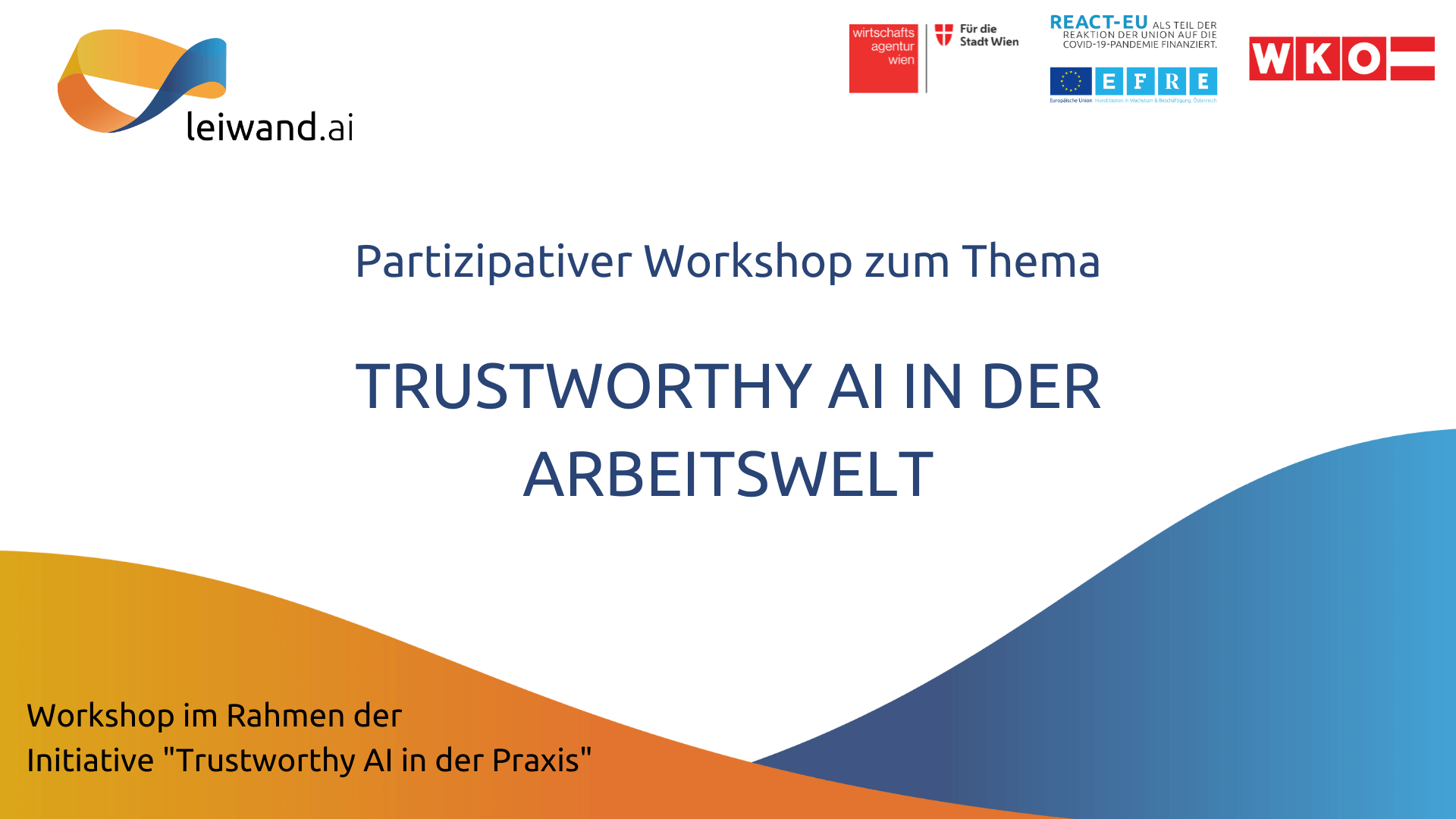Trustworthy AI In Human Resources
To what extent does Artificial Intelligence (AI) already influence our working world today, in particular with regard to human resources, and what will the future bring? What role do trustworthiness and fairness play regarding AI Implementation? These questions were discussed in an interdisciplinary group at the workshop "Trustworthy AI in human resources", initiated by leiwand.ai.
The workshop "Trustworthy AI in human resources" took place virtually on January 18th 2022 and kicked off the initiative "Trustworthy AI in practice", that was called to life by the founders of leiwand.ai, Rania Wazir and Gertraud Leimüller. The workshop was implemented together with the Vienna Business Agency and the Vienna Chamber of Commerce, as well as the research project fairbydesign (funded by the FFG).
The 25 participants were carefully selected, representing a wide variety of stakeholder groups: AI developers, users of AI systems, scientists from different disciplines and stakeholders from companies and public administration, as well as from worker’s and human rights organisations. In a co-creation setting, the interdisciplinary participants were invited to join the discussion on areas of application, their specific challenges and opportunities as well as practical requirements on AI.
Two speakers gave the introduction to the topic. Elisa Harlan, data journalist at Bayerischer Rundfunk, opened the workshop with a broad-based research and experiment on an AI system used in recruiting. All information on the experiment can be found (only in German) at Fairness oder Vorurteil? (br.de). For a similar study in English, see MIT Technology Review’s article We tested AI interview tools. Here’s what we found.
Group picture of the online workshop
Prof. Dr. Martin Kersting, Professor of Psychological Diagnostics at Justus Liebig University Giessen and member of the German Ethics Advisory Board HR-Tech, provided the thematic overview of application areas as well as possible opportunities and challenges of AI in the Human Resources sector in his keynote speech.
In a subsequent plenary discussion with both speakers, questions about the targeted balancing of bias and the possibilities of positive discrimination were discussed, as well as the problem of agreeing on a suitable standard of comparison or quality assessment criteria. On the other hand, practical first steps such as the appropriate selection of training data and the necessary training and information of users were debated.
The discussion was further deepened in interactive small groups, in which opportunities and challenges of trustworthy AI, especially in job search and recruiting processes, performance appraisals, and employee/employer selection and matchmaking, were discussed. All groups engaged in an intensive discussion and identified a variety of challenges, but also opportunities. The challenges discussed ranged from restrictive or unclear legal frameworks and lack of transparency of algorithms, to poor data quality and lack of insights on the impact of human intervention in AI decisions. These challenges stand in opposition to opportunities such as making discrimination visible, disclosing employment decisions, and strengthening diversity and equity within the employee pool. The next page provides an overview of the small groups' findings.
The exchange showed that the use of AI in Human Resources processes in Austria is still in its infancy. There are many legal, ethical and sociological aspects to consider in this highly critical application area. The interdisciplinary discourse must be continued in order to jointly shape the development and application of AI technology in this field. Only through further multi-stakeholder engagement and discourse can the potential of artificial intelligence for human resources unfold and the numerous opportunities be exploited, as well as the emerging challenges be overcome.
The insights gained and the findings of the workshop will be incorporated into the charter "Trustworthy AI in practice", which will be further elaborated in a conference on Trustworthy AI in autumn 2022.
Download a summary of our findings here: Findings PDF
You want to know more about trustworthy AI? Get in touch!
In cooperation with






